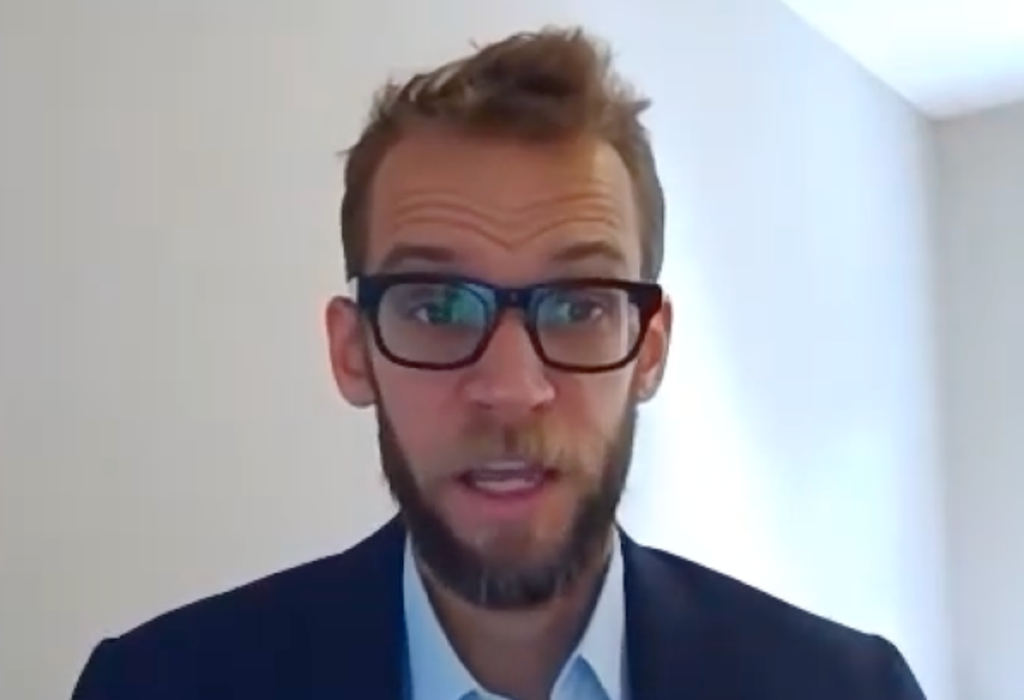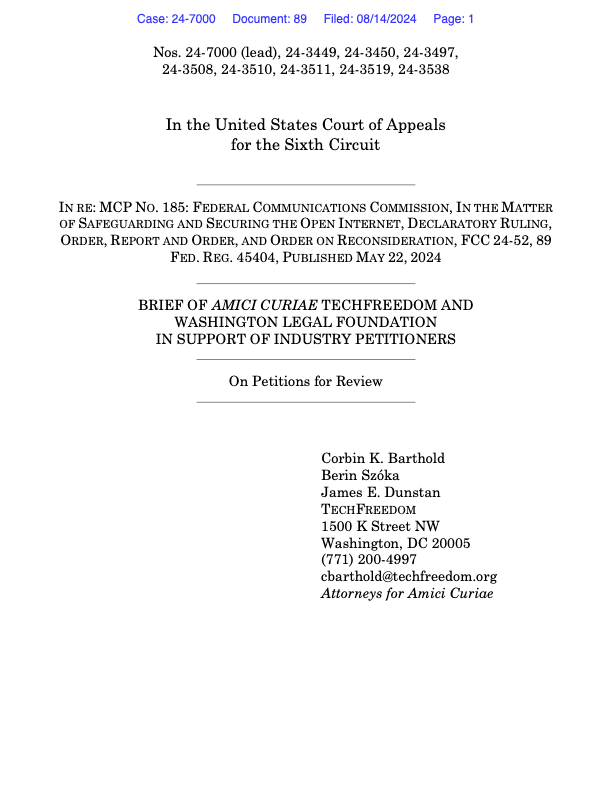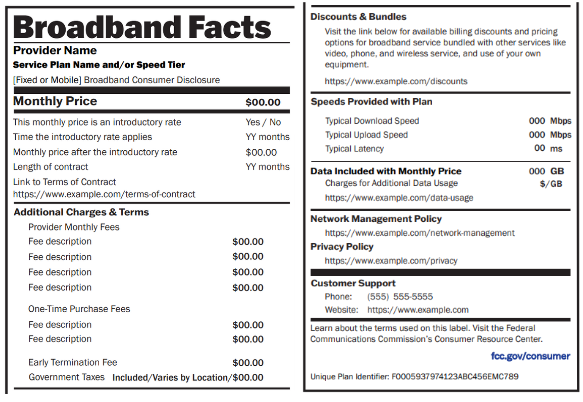Free Market Think Tanks Back ISPs in Net Neutrality Challenge
The court overseeing the case said earlier this month that ISPs are likely to succeed under the Supreme Court's major questions doctrine.
Jake Neenan

WASHINGTON, August 14, 2024 – Two right-leaning think tanks backing ISPs in the challenge to the Federal Communications Commissions Net Neutrality rules claim the new regulatory landscape created by the Supreme Court will doom the rules.

Brief of Amici Curiae TechFreedom and Washington Legal Foundation
In a brief filed Wednesday in the U.S. Court of Appeals for the Sixth Circuit, libertarian-leaning think tanks TechFreedom and the Washington Legal Foundation cited the Supreme Court’s major questions doctrine as preventing Net Neutrality from taking effect.
“This is no ordinary matter of statutory interpretation. The FCC is seeking to answer a major policy question – but it lacks clear authority to do so,” the group said in a 41-page brief signed by Corbin Barthold, Berin Szóka, and James Dunstan of TechFreedom.
The major questions doctrine, broadened in 2022 to prevent agencies from deciding issues of “vast economic and political significance” without explicit instruction from Congress, was part of a series of recent Supreme Court rulings that curtailed the power of administrative agencies like the FCC. The high court also scrapped Chevron deference and made it more difficult for agencies to enforce civil penalties in June.
The FCC’s Net Neutrality rules, put on hold by the Sixth Circuit while the challenge from ISPs played out, would reclassify broadband as a common carrier service under Title II of the Communications Act of 1934, opening the industry up to more expansive oversight from the FCC.The rules were put in place in 2015 under the Obama FCC, and then repealed two years later by the Trump administration.
TechFreedom and WLF agreed with broadband industry groups’ assertion that reclassifying broadband met the “vast political and economic significance” standard, and the move would thus require explicit instruction from Congress.
The Sixth Circuit has already been receptive to the argument. When the court stayed the FCC’s Net Neutrality order earlier this month, judges wrote that the ISPs “are likely to succeed on the merits because the final rule implicates a major question, and the FCC has failed to satisfy the high bar for imposing such regulations.”
In opposing the ISPs’ stay motion, the FCC argued the doctrine did not apply, writing that industry claims of the economic and political impact were “exaggerated” and noting that unlike in other major questions cases, the agency has previously classified broadband and other services as it saw fit.
The agency cited the 2005 Supreme Court case NCTA v. Brand X Internet Services, which found Title II was ambiguous in terms of whether it applied to ISPs and deferred to the agency’s decision making on classifying broadband.
Brand X has been cited by both sides of the Net Neutrality challenge – the ISPs pointed to the finding of statutory ambiguity as evidence the rules failed the major questions test, and the FCC said the case reaffirmed its authority to classify services under the Communications Act.
A full brief on the merits from the FCC is due on September 11. Oral arguments in the case are slated for late October.










Member discussion